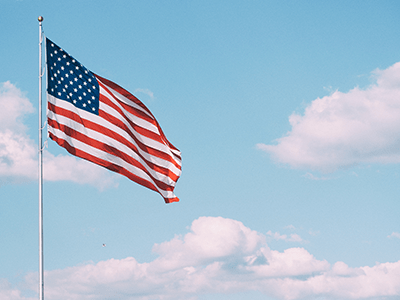On February 5th, SMU’s own Dr. Jeffrey Engel presented on the common themes that have shaped how Americans have viewed war throughout history. From the Declaration of Independence through modern day, American presidents and policymakers in search of popular support have routinely defined their wars as crusades against evil despots, only to see their own rhetoric warp the ways Americans have come to understand war itself.
In America’s infancy, President Jefferson made it clear that there was no war with the British people, emphasizing that the true source of discomfort was the tyranny and abuses of King George. This rhetoric of personalizing conflicts with other nations has carried on in the statements of American leaders. During World War I, President Wilson faced challenges due to the staggering number of German nationals in the US during World War I, countering the challenge by framing it as a war against the evil Kaiser–unlike Britain and France, who demonized the German people themselves. The Pacific War, in contrast, was not shaped by this view and emphasized no distinction between the Japanese people and the enemy, resulting in what is now essentially regarded as a race war. Now, however, it is difficult to look back on American history after World War II and find a racial “other” due to increased immigration from around the globe.
The U.S. saw President Bush avoid generating internal division in the racial melting pot that America has become by avoiding waging war on Muslims and Iraqis–who have increased greatly in number in America in the past half century–instead pointedly focusing on the individuals in power. This basic formulation of the way that war works has become the general American way of thinking: if war is the fault of evil despots, remove the evil despot to end the war.
Dr. Engel closed by pointing out that, in practice, it is often not that simple. The language employed to fight, in other words, contains within it the seeds of American defeat.
Dr. Jeffrey Engel is a Senior Fellow with the SMU Tower Center, the founding director of the Center for Presidential History at SMU, and a professor in the Clements Department of History at SMU.
